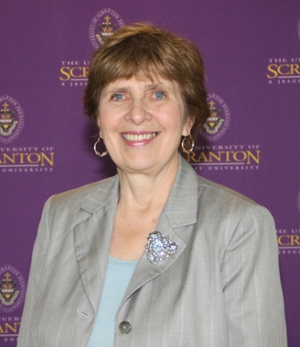
Why Belong to a Professional Association?

Dr. Margarete Zalon, Professor, Nursing Department
PCPS faculty are leaders in a number of arenas. The faculty are not only members of their professional associations but have taken on leadership roles within those organizations. Being an active member and a leader provides opportunities for networking, enhances your professional growth, and enables you to work with colleagues in advancing the profession and serving others.
Networking is one of the most valuable aspects of association membership. It provides the opportunity to connect with colleagues in your community, regionally, nationally and globally. Association colleagues are a source of new friends, provide mentorship and often guide members in seeking new opportunities. These lifelong professional relationships not only provide opportunities for personal growth, but opportunities to contribute to society.
One benefit of association membership is keeping you in touch with the latest developments in your discipline through continuing education, publications and conferences. Opportunities are provided to influence policy to not only strengthen your profession, but to improve society. The early development of the professions is replete with stories of leaders who single-handedly influenced the development of their disciplines. However, in an increasingly interdependent society, working together to achieve professional goals is now the norm and a necessity. Changes in legislation and policy occur as a collaborative effort. While we might not always agree with an organization’s stance, being a member provides a powerful means of influencing its direction, positions, policies, and spheres of influence. Connecting with others who have chosen the same career path allows you to gain new perspectives, share common experiences and collaborate in addressing issues within the profession and beyond. You can easily become a well-informed member of the profession.
In my career, I have not only accrued these personal benefits, but when I have been privileged to serve in an organization by volunteering, or holding appointed and/or elected office, I have brought back what I have learned to my workplace -- in this instance, the classroom. Likewise, each of us brings a unique set of experiences to an organization that helps achieve its mission. Being an active member and leader helped me to pave the for my students by working to improve the practice environment and the communities we serve. Connecting with colleagues across the country has enabled me to gain new insights on contemporary solutions to practice challenges. Active participation is a means of not only enhancing one’s credibility as a leader, but also providing visibility for your organization beyond the local community. Having a ringside seat to the deliberations of association leaders as they address complex issues has allowed me to articulate the rationale for the decisions made and collaborate more effectively in developing solutions for the future
Joining a professional association provides you with a built-in opportunity for professional growth. Associations are always looking for new members. While opportunities for leadership and advancement may be limited in some workplaces, setting your sights on leadership opportunities in an association can provide you with valuable experiences as you seek to advance your own career and prepare for new roles within your workplace. It can boost your confidence in taking risks as you assume more responsibility. Professional growth also means taking others along with you. And, it can lead to additional opportunities to represent your profession at policy tables and interprofessional groups.
A commonality among leaders in nursing has been early and ongoing involvement in professional associations. This no doubt is true across the disciplines represented in PCPS. Setting your sights on leadership roles not only provides you with valuable competencies, but opportunities to make your views known to serve others in the Jesuit tradition, and to have an impact that goes beyond one’s immediate practice setting. This can be incredibly rewarding, regardless of where you are in your career. Sharing your experiences and learning from others can serve to kindle the joy you experience in your profession while serving others. Professional associations can provide meaningful experiences that make your career rewarding while giving back to your colleagues, the profession and to society.